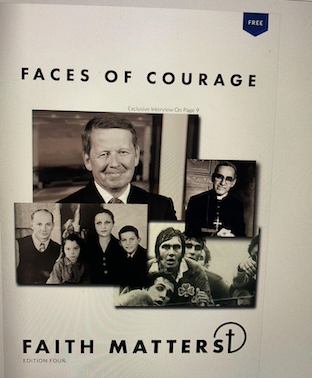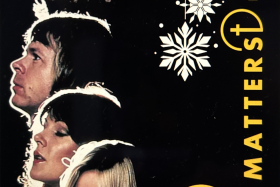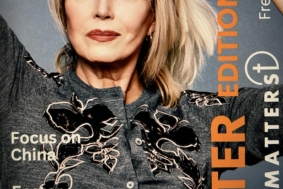Exclusive interview with the late Bill Turnbull

Bill Turnbull, the popular television and radio presenter and journalist died on 31 August. Just before Easter last year, student journalists Abdulrahman Jamal and Senai Esavas from St John Bosco College in Battersea, south London, managed to get an exclusive interview with him for their magazine Faith Matters. The full text follows:
What was your motivation for going into journalism?
I was at university when the Watergate scandal broke in the early 1970s. I read Woodward and Bernstein's book about it - All The President's Men - and was hooked. The idea of bringing truth to people in what is sometimes a misleading and unfair world attracted me morally. I've never wanted to do anything else.
What would you say was the highlight of your career?
That's difficult to answer as there have been many personal highlights. Some of the stories I covered as a reporter were very special. I've had the privilege of travelling to many countries on all sorts of different assignments, but two stick out in my mind. One was a trip to Haiti to make a short film about voodoo and werewolves. We filmed things that I'm sure no outsider had witnessed before. Before the trip began, I went to our local Episcopal church in Washington DC where we were living at the time, and asked for a blessing, as a sort of spiritual insurance. When the time came, and we were in a rather spooky situation, I had no fear.
The other highlight was late in my time on Breakfast, and we did a series of live broadcasts from Camp Bastion in Afghanistan, as it was gradually being wound down. It took a lot of getting to, but it was well worth it - especially as we did also some filming on the streets of Kabul.
Besides journalism, what other aspirations did you have as a child/young adult?
I'm sorry, I can't remember any! Journalism was the only profession that ever attracted me.
If you had to choose between working on BBC Breakfast, competing on Strictly Come Dancing again, or presenting Songs of Praise, which one would you choose and why?
I'd go back to BBC Breakfast in a heartbeat, if it wasn't for the early starts. But I'm 64 now and living 250 miles from the studio, and have other battles to fight. Breakfast was always interesting and fulfilling. I made great friends, and met some remarkable people from all sorts of backgrounds. And to have been on the programme when it became a success audience-wise still feels like a great achievement.
What impact did the discovery of prostate cancer have on your outlook on life and on your faith?
It was the greatest shock of my life, as I'd been really healthy, so everything was turned upside down for a while. I had to undergo a lot of chemotherapy, which was pretty unpleasant. And there were six operations to insert and replace a stent in my kidney. Thankfully, that's over now.
When I was first diagnosed, my faith disappeared in a single moment, like a balloon that's been punctured. I think the shock of being told that my life was going to be considerably shorter than I had imagined, just made it disappear. I wasn't angry. It just went. I have faith now, great faith, but in a rather different form.
Would you say that your relationship with God or your understanding of God, is different now, compared to your relationship with God prior to the discovery of your cancer? If so, in what way is it different?
Absolutely. I've had to think a lot about death. It was daunting at first, though I've encountered death a few times during my time as a reporter. But I had an important moment about six months in, when I jumped through what I call the "window of fear". That was a great relief, as it meant I could look ahead without being afraid.
What makes most sense to me now is the Buddhist way of thinking, that there is no birth, and no death, just continuation and transformation. Scientifically it also seems to me to be the most logical concept.
What is your go to passage in the Bible when you need an uplift?
I've always found the Magnificat to be a wonderful work of social justice, as well as being a beautiful poem:
'He hath put down the mighty from their seat: and hath exalted the humble and meek.
He hath filled the hungry with good things: and the rich he hath sent empty away.'
I also find this Buddhist quote useful: 'The secret of health for both mind and body is not to mourn for the past, worry about the future, or anticipate troubles, but to live in the present moment wisely and earnestly.'
What advice would you give budding journalists today?
It's really hard these days, I understand that. The best thing to do is to get a job of some kind in the business, any job. Get your foot in the door. And then work hard, harder than anyone else. I always say "talent will out". In other words, if you're good at what you do and stick at it, you will get noticed. Perhaps not as soon as you like, or in the way that you want, but eventually it will happen.
Nothing was ever handed to me on a plate when I was a journalist.
LINK
Faith Matters 4 - https://pages.sjbc.wandsworth.sch.uk/index.html?catalog=FaithMatters-4


















